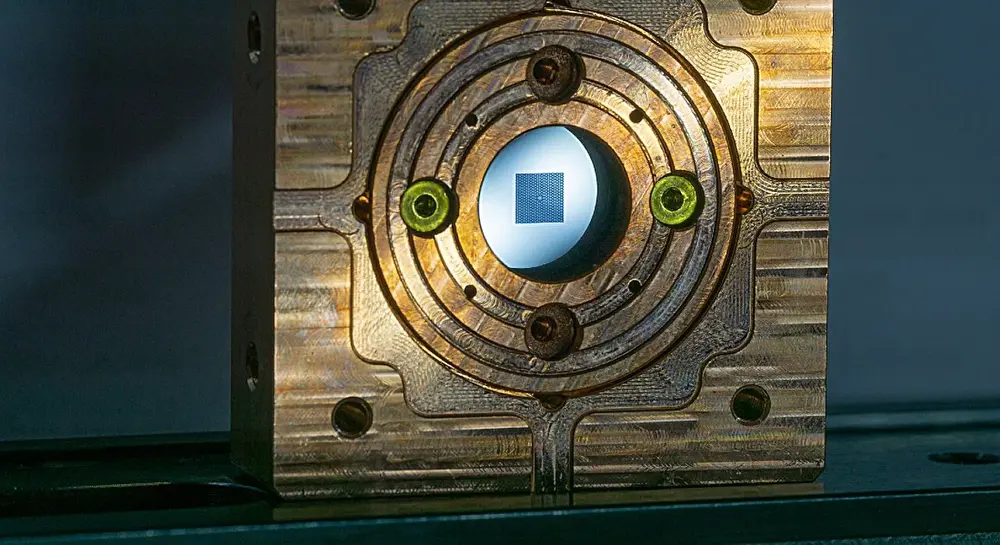A group of scientists from the Niels Bohr Institute (Denmark) announced the creation of an unusual quantum memory – a “quantum drum”. This is an optical-mechanical memory that remembers the quantum states of photons in mechanical (sound) vibrations of a ceramic membrane – actually a drum. Such a device could make the quantum internet a reality by acting as a repeater to transmit entangled quantum states across a network.
A “quantum drum” is a ceramic plate made of a glass-like material. In a series of previous studies, scientists proved that a specially processed ceramic plate allows storing the quantum states of the laser beam (photons) hitting it. The wonderful thing is not that the quantum state of light turns into sound, but that in fact the quantum device is represented in a completely concrete detail – the quantum microcosm in this device is embodied at the macro level, it is completely concrete and it is already possible and necessary to work with it.
The drum stores the quantum state until the moment when it can already be transmitted over the network in the form of photons. This is temporary memory and is absolutely necessary for the organization of repeaters. After all, we are well aware that the main advantage of quantum communication networks is the sensitivity to interception of messages. Any capture of photons in “charged” quantum states disrupts these states and is an indication that transmission has been compromised. If classical repeaters that convert “qubits” into digits and back are installed on the main line, this will provide a channel for leakage because the digit can be hijacked and undetected.
Purely quantum repeaters are the problem of modern times and have not yet been developed or proposed anything new, for example, “quantum drums” developed at the Niels Bohr Institute. You shouldn’t even dream of a worldwide quantum network without such devices. The Danes have taken a definite step in the right direction. They showed in the laboratory that, at room temperature, the lifetime of a quantum signal in a membrane reaches 23 ms, with an effective subtraction probability of 40% for classical coherent pulses.
“We expect the storage of quantum light to be possible under moderate cryogenic conditions (T?10 K). Such systems may find application in new quantum networks, where they can serve as long-lived optical quantum storage devices that store optical information phononically. [звуковому] mode”, — developers explain in an article in the magazine Physical Examination Letters.













